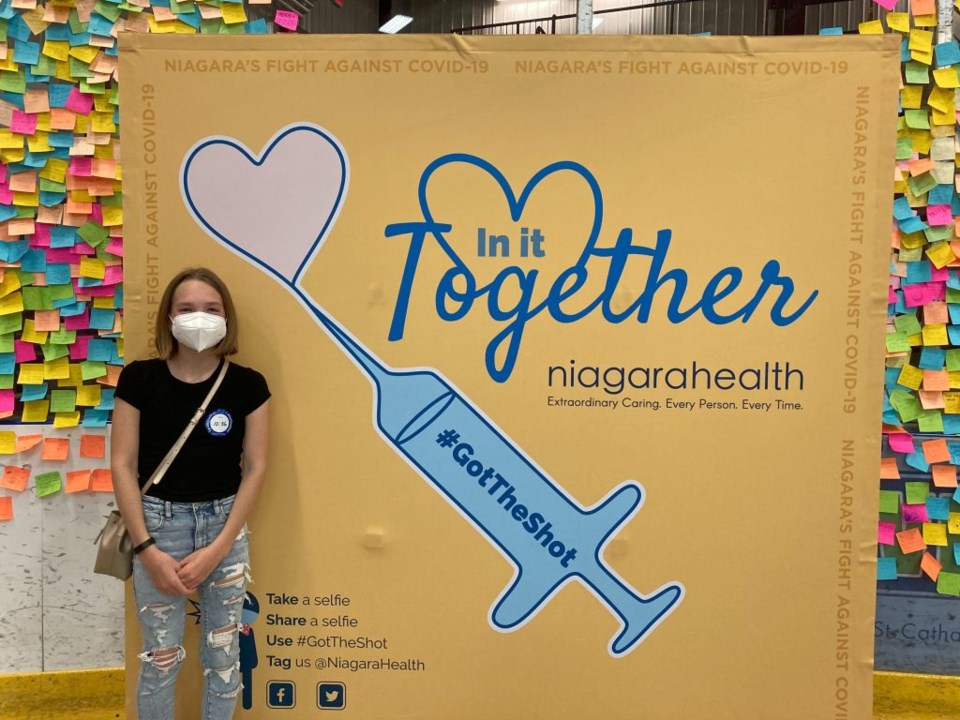
The Niagara Health system is being stressed with hospitalizations, with the omicron variant stretching resources to the point where there could be a shortage of intensive care beds, Dr. Mustafa Hirji warned Monday.
“I think it’s definitely a big concern that we could start to run out of beds very soon, and that’s a very limited resource that we have in our health-care sector,” Hirji said.
The number of infections could be peaking, and he’s hopeful that might be the case, but even so, there will be a period of time when hospitalizations will be at a higher rate than we have seen at
any point previously in this pandemic.
“It’s important to remember we are in this for the long haul, and it’s going to be quite a while where we will continue to see high levels of infection.”
Seven patients with COVID-19 died over the weekend at Niagara Health hospitals, the acting medical officer of health reported Monday, with 157 patients in the hospital being treated for the infection, including 29 patients in intensive care.
As Canadians were learning about Paxlovid Monday, a medication taken in pill form that is expected to decrease hospitalizations for people with COVID, Hirji warned there may not be enough of the drug available to sufficiently reduce stress on the health care
system.
Hirji said he’s excited to see children back in school, and bekieves the discussion should always be about what can be done to protect them.
With more cases in the community, and less ability for testing, there is more chance that students will be infected in school. But there are lots of things we can do to reduce the risk, including prioritizeng testing for children by sending home rapid tests, he said.
Quality masks for children and teachers are important, and unnecessary mask exemptions should be reduced, Hirji added.
The province has done some good work on ventilation in schools but Niagara Public Health is assessing how good ventilation is in individual classrooms, and taking steps to improve it when necessary.
Hirji said he’s disappointed the province hasn’t taken steps to add COVID to the diseases covered by the Ontario immunization legislation that requires parents to report their children’s vaccination status, which exists to protect teachers and children from illness. If the province decides to change that legislation, he explained, it could happen within a matter of days. “It doesn’t require children to be vaccinated,” he stressed, it just requires parents to notify school boards about their decision and the reason for it.
That then becomes a tool to manage an outbreak by providing the ability to suspend students who are unvaccinated to keep them safe, Hirji said.
Currently, Public Health is working with schools to do some level of testing to ensure schools stay safer, including making sure unvaccinated children are isolated during an outbreak to reduce infections.
The first line of protection remains vaccines, and though the “plurality of adult residents in Niagara” have received a booster, said Hirji, he continues to be disappointed in the number of children in the five to 11 age group who are vaccinated, and would like to see it higher, especially with the return to school. It is approaching 43 per cent in that age group, but “I would be much more comfortable if it was around 80 percent.”
Unlike the provincial approach to infections in classrooms, Niagara Region is working with school boards on a process to notify parents if their children have been exposed to a confirmed case of COVID, with advice that if children are unvaccinated “they should be staying home.” Without the immunizations in schools legislation that requires the cooperation of parents, he added.
Although earlier in the pandemic the vaccine supply was limiting the number of vaccinations, that isn’t an issue any more, with about 6,000 doses being administered daily.
There is no shortage of appointments available, for boosters or first or second doses, and in Niagara there is an ability to get closer to 8,000 a day.
However there are currently lots of slots available, he said, encouraging people with appointments in the future to move them up and get vaccinated sooner.